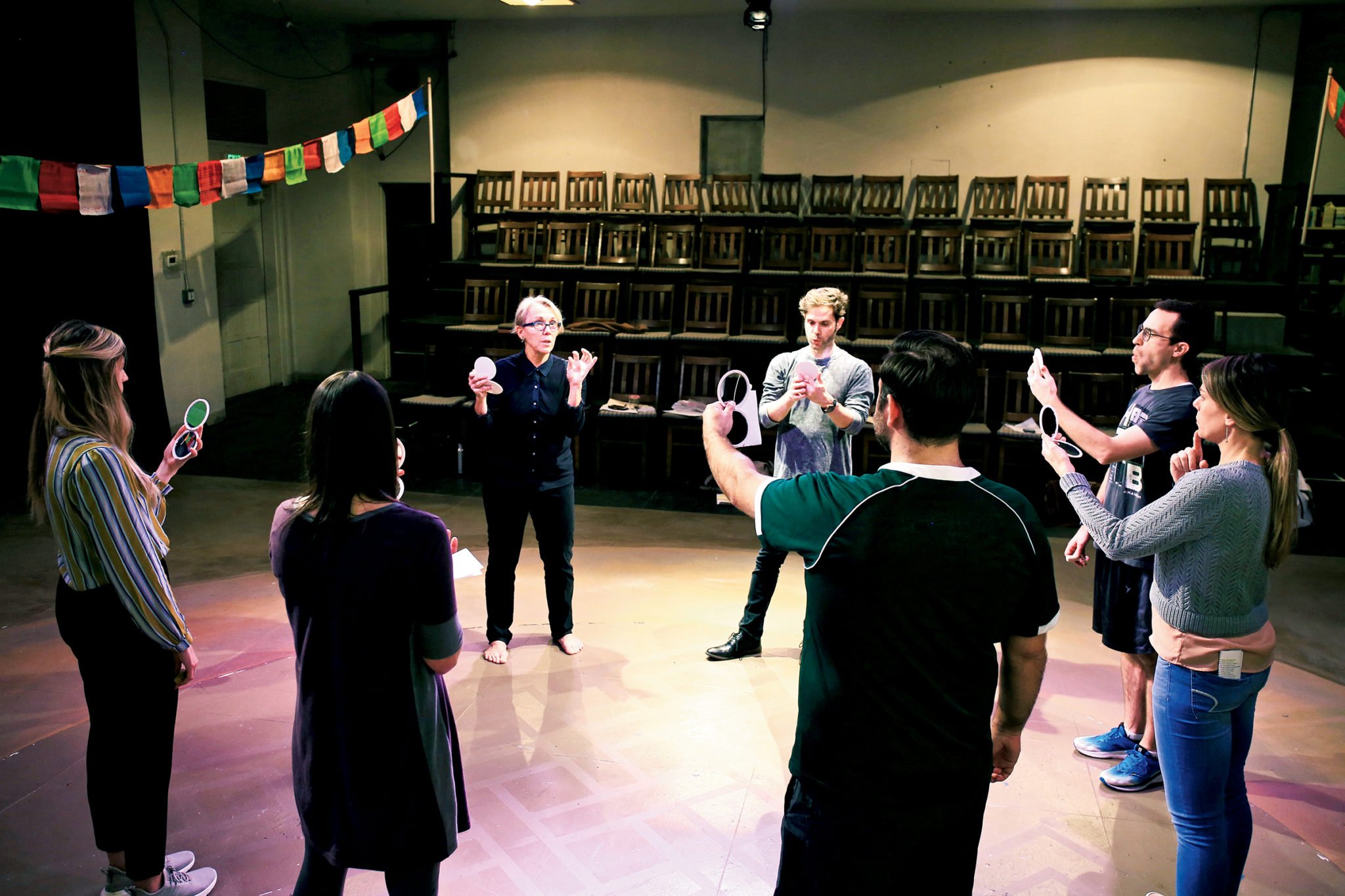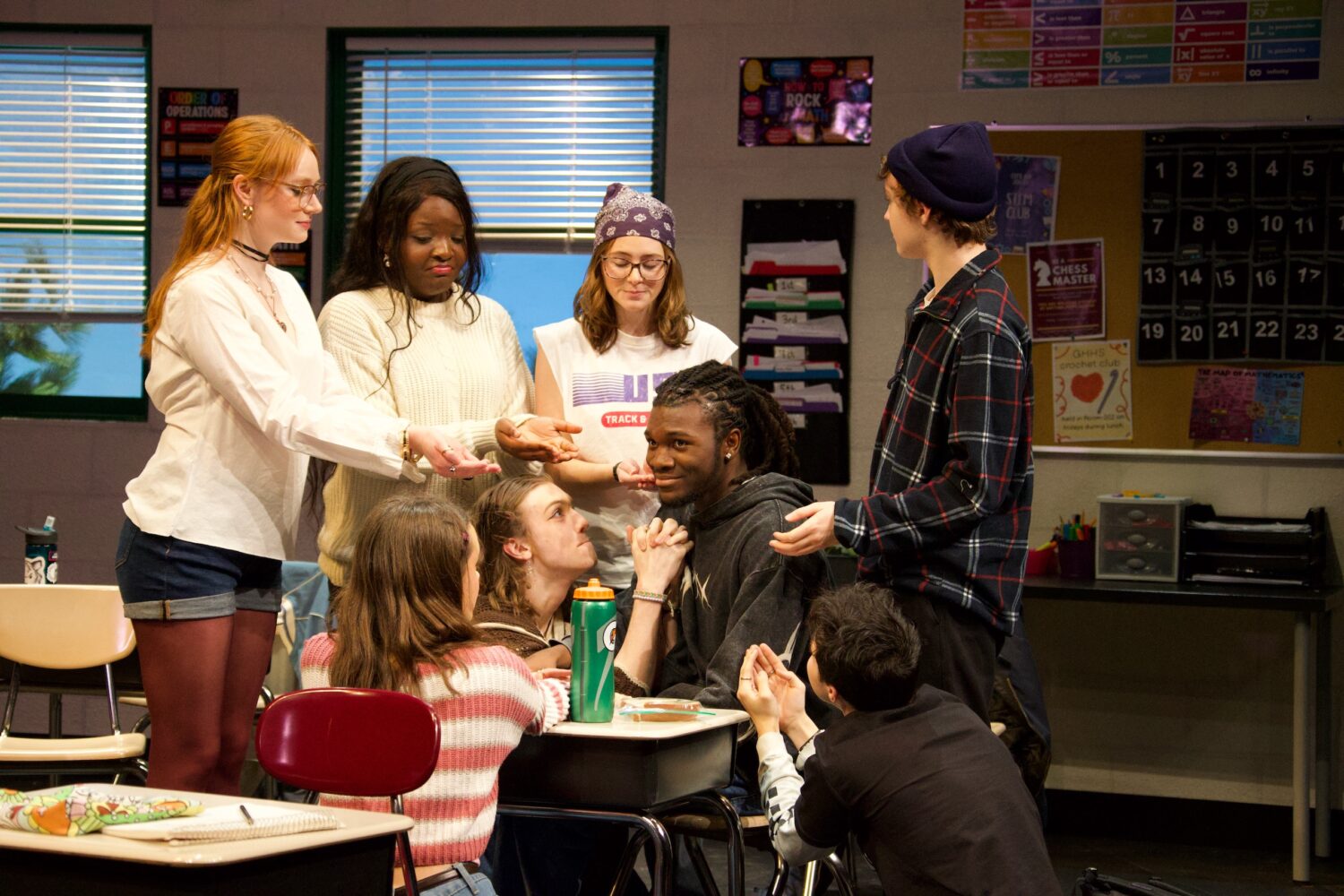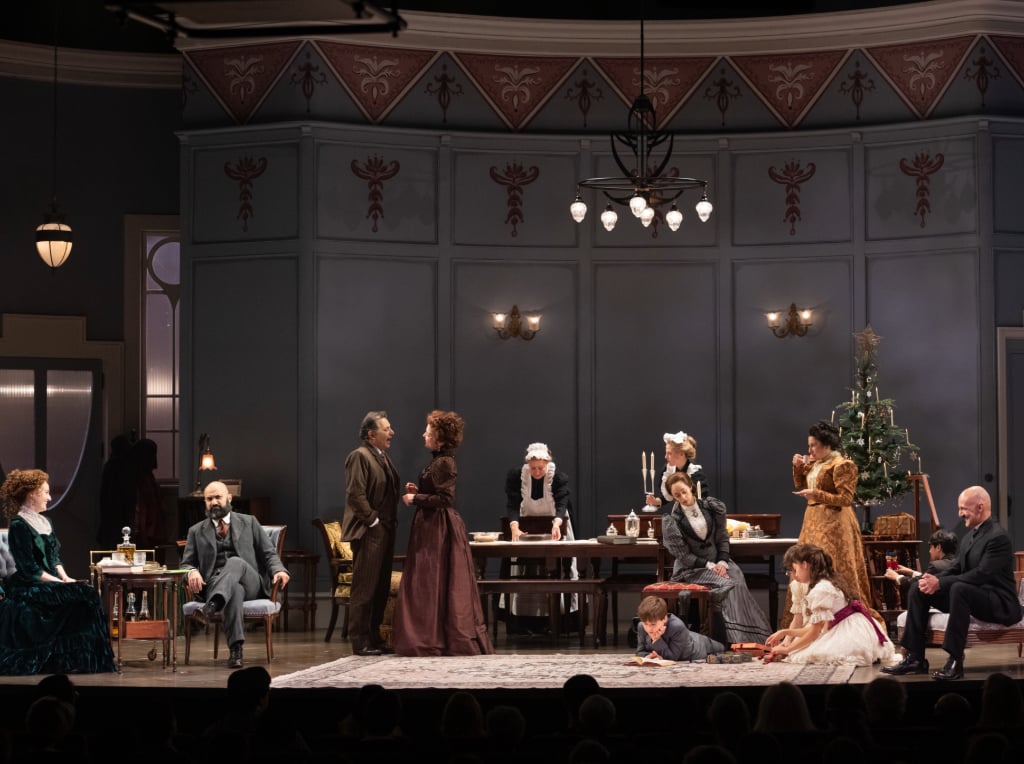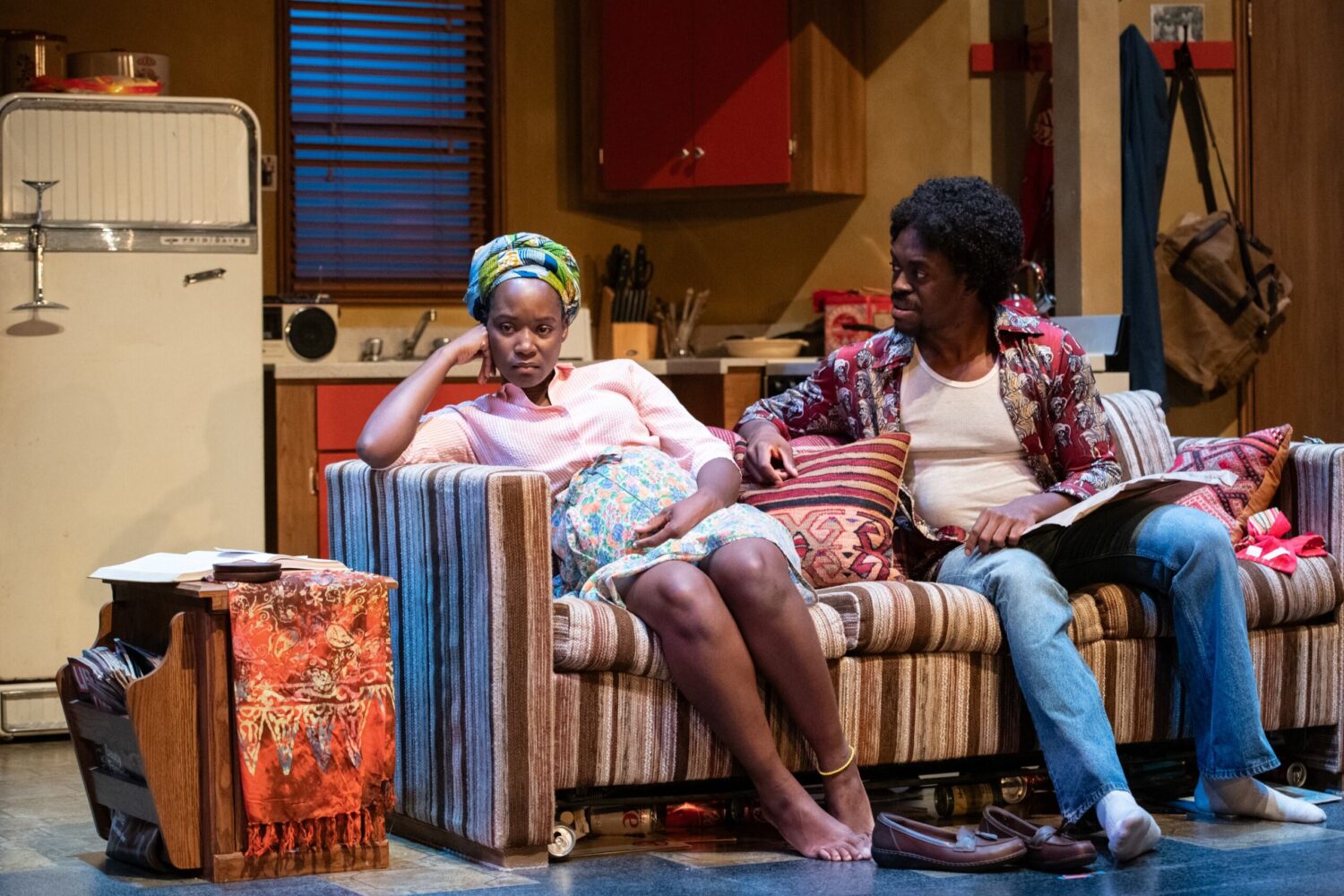Courtney Kasuboski, an associate at the law firm Finnegan, is unwinding a story that involves murder, threats, and the unjust detainment of her client, a Honduran man who was denied asylum. “He endured physical and mental pain and suffering that amounts to torture,” she says.
From a lawyer’s point of view, it’s powerful, case-making stuff. But there’s a problem, and it has nothing to do with the asylum seeker’s story. Rather, it has to do with Kasuboski, the man’s attorney. She’s telling the story in the same lilting tone she might use to place a Starbucks order.
Which is why it’s a good thing she’s not actually talking to a judge or a jury right now. She’s in acting class, standing on a stage in a church basement on 16th Street, Northwest, as she struggles to make eye contact, staring down at her notes, her long blond hair hanging around her face.
Theater director Gillian Drake shifts slightly in her seat as she watches. Attorneys such as Kasuboski are the reason she created this eight-week workshop, Acting for Lawyers. As Drake sees it, too many attorneys value being serious and deliberate above all else. “They tend to speak each word as if they’re choosing each word before they say it,” she explained to me earlier. “That’s why lawyers seem heartless.”
Drake’s job is to help the litigators, client reassurers, and wannabe rainmakers who seek her services loosen up and sound more, well, human. In the coming weeks, the seven new students gathered will be expected to master skills they’re unlikely to have encountered in law school—including how to recite one of Shakespeare’s sonnets while holding a wine cork between their teeth.
For now, though, their task is simply to stand and give short presentations about themselves and their work. When Kasuboski finishes, Drake’s only reaction is a cheerful “Thank you!” She’s saving her real feedback for the end of the evening.
Drake is sixtysomething—she declines to give her precise age—with dark-framed glasses and a platinum bob. She founded the Acting for Lawyers program 34 years ago when she realized that Washington’s huge population of lawyers provided a fertile market for her theater background—as a literary and casting associate at Arena Stage and currently as a director at the smaller Spooky Action Theater near U Street. (According to the American Bar Association, DC proper has more than 56,000 lawyers, or one for every 13 residents.) Drake figures she has taught about 1,700 attorneys over the decades. Her eight-week workshops, which range from seven to 12 students, cost $695; she also holds shorter-term programs and one-off lessons.
She doesn’t coach only trial lawyers, though their job is arguably closest to that of a performer onstage. Her classes draw attorneys who want to communicate better with clients, explain complicated practice areas more clearly, or give more compelling pitches to their bosses and potential new clients. Her company, On Trial Associates, also offers witness preparation, creates focus groups for trials, and supplies actors for mock trials.
Unlike public-speaking courses, Drake tailors her curriculum to the legal set, pushing students to think about how they come across in court and deterring them from using the bullying tactics that frequently wind up in an attorney’s playbook. “Lawyers often pick the easiest voice, which is to be louder,” she says, when a more modulated tone can actually be more persuasive. She also makes them do things that can at first seem silly, such as silently acting out the process of getting out of bed and starting the day—an exercise meant to show them how effective body language can be without saying a word.
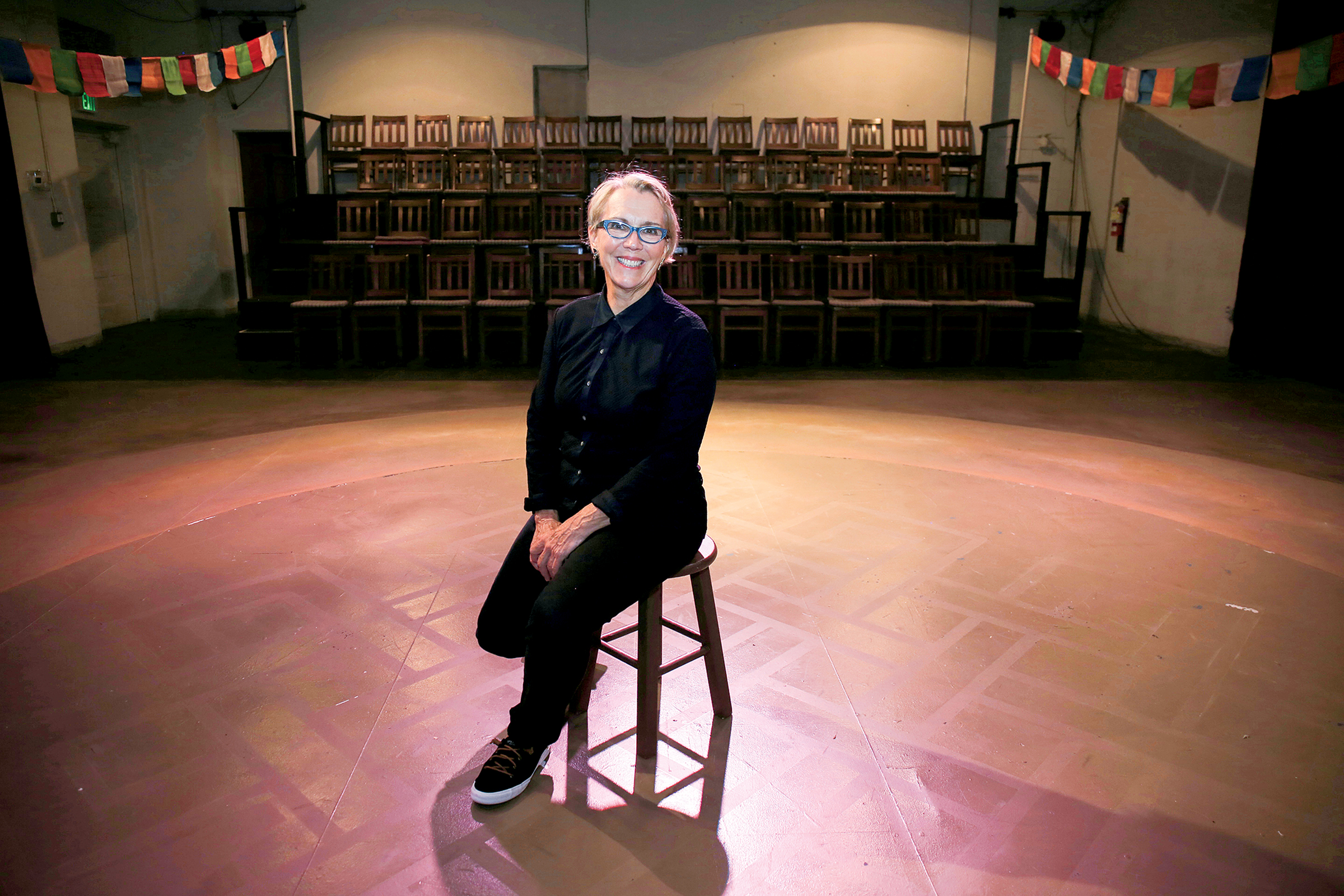
A handful of other acting coaches for lawyers exist around the country, most notably in Los Angeles. LA coach Katherine James, for example, estimates she has taught acting to some 40,000 attorneys in 42 years. But Drake appears to be the only one in the District.
One of her past students, Charles Wayne, senior counsel at DLA Piper, remembers learning that moving around a courtroom is a lot like staging a play. “You can use the space in a particular way,” he says. Drake taught him not to hide behind the lectern. If the jury could see his whole body, she advised, he’d appear more credible. Wayne says Drake also got him to think beyond the objective of just winning. “Now you’re thinking about it in dramatic terms—how is this coming across?” he says. “So we’re thinking of the legal aspects, but we can’t ignore the performance aspects.” Since taking the class, he’s more conscious of where he stands and how he moves.
Another exercise Drake likes to deploy involves assigning students a one-word description to inform how they give a presentation to the class. Michael Shor, who now practices law in North Carolina, recalls getting “seduction” as his word. “Apparently, I pulled it off,” he laughs. He says focusing on the descriptor made him more aware of how to convey a message to his audience. “You know the law, the facts, the case, the judge. But what kind of approach is most likely to grab that judge’s attention?”
To be clear, all the techniques serve the goal of honesty. “The name of her class is a little bit of a misnomer,” says Justin Hendrix, now an intellectual-property counsel for an aerospace company. “In a courtroom, credibility is king. You never want to fake tears, fake outrage.” The objective, he says, is to be genuine, to “always have that credibility, but to understand the effect your words have.”
Back inside this night’s acting class, the lawyers have all finished their presentations and Drake is doling out critiques. “There were some people who could dwell in silence a little bit,” she begins. “We like that. It shows confidence, right?”
She zeros in on Courtney Kasuboski, the lawyer from Finnegan. Drake tells her she was crushing her diaphragm by looking down and was making herself look small by clutching the podium. “Stay with the words,” Drake instructs. “Embody them.”
Other attorneys ignored one entire side of their audience, had a “disconnect” between their hands and their words, made unfocused eye contact but didn’t actually seem to see the audience, or spoke with no energy, Drake says. But it’s not all bad news. One student “had great arm gestures,” she observes, referring to the fact that he moved his limbs freely rather than gluing them uncomfortably to his sides.
She asks how long he’s been practicing. Three years, he answers. “That’s a lot of swagger for three years,” she says, ending class on a positive note.
Next week’s assignment: memorizing sonnets.
This article appears in the January 2020 issue of Washingtonian.

